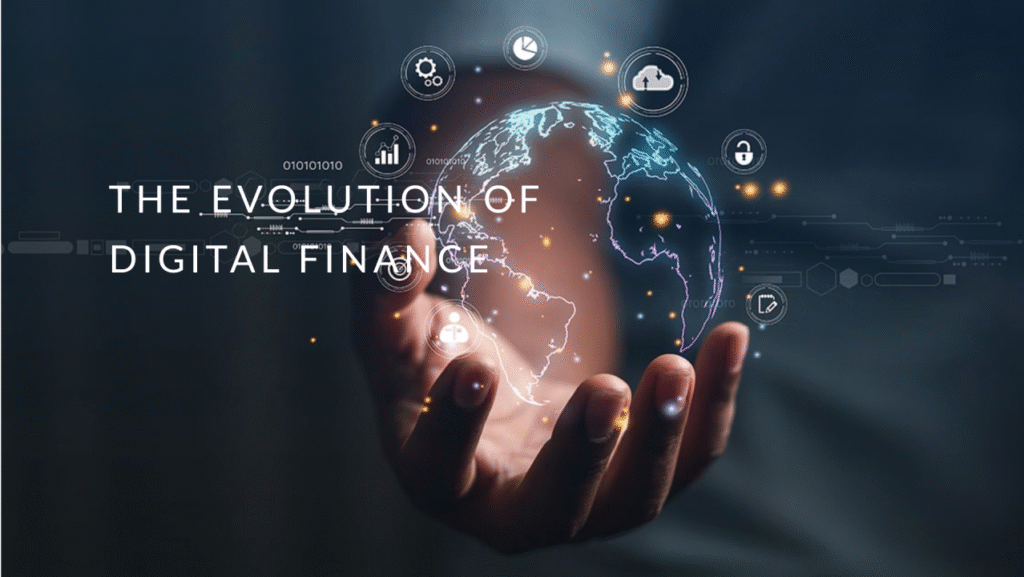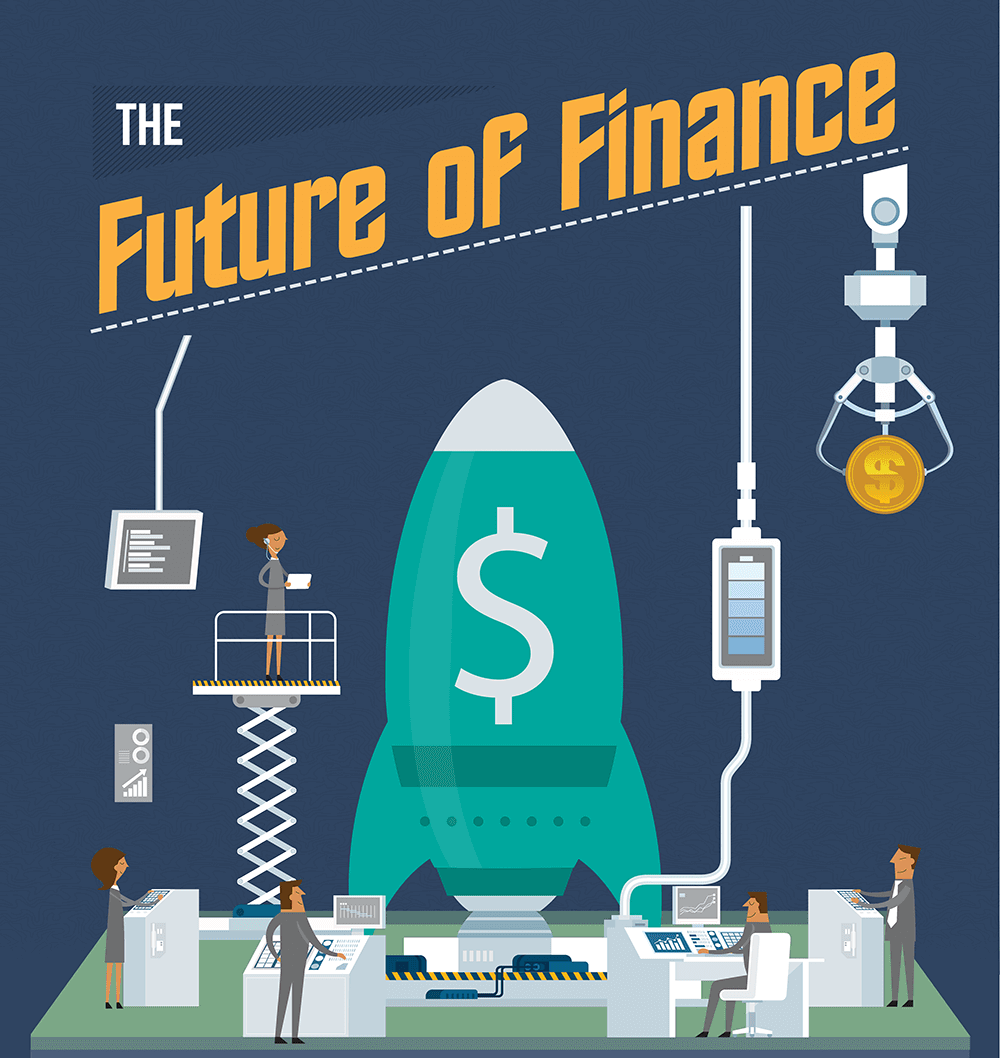Finance, as we know it, is undergoing a transformation more rapid and profound than any time in history. Digital disruption, economic globalization, changing consumer behaviors, and emerging technologies are converging to reshape how money is created, transferred, invested, and managed.
In the 21st century, the future of finance is being written not just by bankers and economists, but by technologists, regulators, innovators, and increasingly—ordinary users. As we look ahead, the financial landscape promises greater efficiency, inclusion, and automation, but not without challenges like cyber risks, ethical concerns, and regulatory uncertainty.
This article explores the future of finance by examining its past, analyzing key transformative trends, and forecasting what’s to come by 2030 and beyond.
Key Takeaways
- Finance is evolving rapidly, driven by technology, globalization, and changing user expectations.
- AI, blockchain, fintech, and ESG are central pillars of future finance.
- Financial services are becoming more accessible, but challenges such as cybersecurity, regulation, and digital literacy remain.
- Decentralization is empowering individuals but also creating new governance dilemmas.
- The future of finance is not just digital—it’s sustainable, inclusive, and intelligent.
- Regulatory technologies (RegTech) and supervisory technologies (SupTech) are becoming vital tools for efficient, real-time compliance and risk monitoring.
- Open banking and embedded finance are reshaping the financial ecosystem by enabling third-party integrations and allowing non-financial companies to offer financial products.
- Cybersecurity and data protection will remain top priorities as finance becomes increasingly digital and interconnected.
- Financial inclusion is improving thanks to digital access, but efforts must continue to reach underserved populations worldwide.
- Collaboration between traditional financial institutions and fintech firms will be essential for building resilient, innovative, and customer-centric services.
- Consumers must be proactive about financial education and digital security to navigate the evolving landscape safely and effectively.
- The future of finance depends on a balance between fostering innovation and maintaining strong governance, ethical standards, and inclusivity
The Evolution of Finance

Finance has evolved from simple barter systems to complex, interconnected digital networks. The journey spans several ages:
- Ancient Finance: Barter, coinage, and early banking in Mesopotamia, Egypt, and Rome.
- Medieval Finance: Emergence of merchant banking, promissory notes, and the first stock exchanges.
- Industrial Finance: Capital markets expand; banks become central to economic growth.
- Modern Finance: Introduction of fiat currency, credit cards, stock markets, and financial regulations.
- Digital Finance: Online banking, mobile payments, and fintech platforms reshape financial services.
Each stage has introduced new tools, risks, and opportunities—laying the foundation for today’s rapidly changing financial ecosystem.
Key Trends Shaping Future Finance
Future finance is being molded by several key trends that are altering how financial institutions operate and how users interact with money.
Digital Transformation
Digital transformation refers to the integration of digital technology into all areas of finance, fundamentally changing how institutions operate and deliver value.
- Mobile banking and neobanks
- Contactless payments and biometric verification
- Paperless onboarding and document automation
- APIs and open banking frameworks
Artificial Intelligence and Automation
AI is poised to become the brain of future financial operations, enabling hyper-personalized services and operational efficiency.
- Fraud detection and risk analysis
- Robo-advisors for wealth management
- Chatbots for customer service
- Credit scoring using alternative data
Implications: Increased speed and accuracy in financial services, but also concerns over transparency, fairness, and employment displacement.
Blockchain and Decentralized Finance (DeFi)

Blockchain is a foundational technology enabling decentralized, peer-to-peer finance systems that eliminate intermediaries.
- Immutable transaction records
- Smart contracts for automated financial agreements
- Permissionless lending, borrowing, and trading
Rise of Cryptocurrencies and Digital Currencies
Digital assets like Bitcoin, Ethereum, and CBDCs (Central Bank Digital Currencies) are revolutionizing monetary systems.
- Increasing institutional adoption of cryptocurrencies
- Stablecoins pegged to fiat currencies
- Governments exploring or launching CBDCs.
ESG and Sustainable Finance
Environmental, Social, and Governance (ESG) considerations are becoming central to financial decision-making.
- Green bonds and climate-focused investments
- Social impact investing
- ESG compliance scoring and reporting tools
Implications: A shift toward ethical capitalism, where sustainability becomes a financial imperative.
The Role of Fintech
Fintech (financial technology) startups are challenging traditional banks by offering faster, cheaper, and more user-centric services.
- Peer-to-peer lending platforms
- Crowdfunding and microfinance apps
- Insurtech (insurance tech)
- Regtech (regulatory tech)
Implications: Increased financial inclusion, especially in developing economies, and constant innovation driven by competition.
Democratizing Access to Financial Services
Fintech is breaking down traditional barriers in banking and finance. Where conventional institutions often require documentation, credit history, or even physical access to a branch, fintech platforms can onboard users in minutes using smartphones and digital identity verification.
- Financial inclusion for underbanked and unbanked populations
- Micro-lending and mobile savings options for rural and low-income users
- Platforms like Chime, M-Pesa, and Kuda serve millions with minimal infrastructure
Revolutionizing Payments and Transactions

One of fintech’s earliest and most impactful areas has been in digital payments. Whether it’s through mobile wallets, peer-to-peer (P2P) apps, or QR code payments, fintech has made transferring money easier, faster, and often cheaper.
- PayPal, Venmo, Cash App for P2P transfers
- Stripe, Square, and Razorpay for digital commerce
- Contactless and biometric payments for security and convenience
Transforming Lending and Credit Scoring
Fintech lending platforms use AI and alternative data (like phone usage, social media, and transaction history) to assess creditworthiness, enabling faster, more accurate loan decisions.
- Buy Now, Pay Later (BNPL) options from companies like Affirm, Afterpay, and Klarna
- Peer-to-peer lending platforms (e.g., LendingClub, Funding Circle)
- AI-based credit scoring models replacing traditional credit bureaus in some regions
Challenges in Future Finance
Despite the opportunities, the future of finance faces significant hurdles:
- Cybersecurity threats: As more services move online, risks of hacking and data breaches increase.
- Regulatory uncertainty: Technology outpaces legal frameworks.
- Digital divide: Not all populations have equal access to digital tools.
- Job displacement: Automation may eliminate traditional roles.
- Financial literacy gaps: Rapid innovation outpaces public understanding.
Regulatory Landscape and Global Standards
As finance globalizes, harmonized regulatory frameworks are becoming critical to ensure stability and trust.
- AML (Anti-Money Laundering) and KYC (Know Your Customer)
- Crypto regulation and taxation
- Data privacy laws (e.g., GDPR, CCPA)
- Cross-border payment compliance
Case Study: Regulatory Evolution in Action
European Union’s MiCA Regulation (Markets in Crypto Assets)
- One of the most comprehensive frameworks for crypto assets
- Covers:
- Issuers of crypto tokens
- Service providers like exchanges and wallets
- Consumer protection and reserve requirements
- Aims to offer passporting rights across all EU nations, reducing fragmentation
Global Standardization: A Work in Progress
Finance today is inherently global, but regulation remains largely national. However, there are growing efforts to harmonize rules across borders.
Major Initiatives & Institutions:
- Basel Committee on Banking Supervision – Sets global capital and risk standards
- FATF (Financial Action Task Force) – Sets AML and CTF guidelines; recently updated to include crypto standards
- IOSCO (International Organization of Securities Commissions) – Coordinates securities regulation
- IMF and World Bank – Provide policy guidance for financial stability and inclusion
- OECD – Leads efforts on tax transparency and digital economy governance
Traditional Financial Regulation: A Recap
Historically, financial regulation has focused on:
- Licensing and supervision of banks and financial institutions
- Consumer protection (e.g., fair lending, disclosures)
- Anti-money laundering (AML) and counter-terrorism financing (CTF)
- Capital adequacy standards (e.g., Basel Accords)
- Market integrity (e.g., insider trading, fraud prevention)
While these rules were designed for brick-and-mortar banks and centralized markets, they are increasingly inadequate for:
- Fintech platforms operating across borders
- Decentralized apps (dApps) with no legal entity
- Digital currencies and pseudonymous transactions
Impact on Consumers and Businesses
Enhanced Financial Access and Inclusion
- Fintech platforms and mobile banking have empowered individuals—especially in underserved and remote areas—to access financial services such as savings, credit, and insurance.
- Digital wallets and peer-to-peer payment systems are reducing dependency on traditional banks.
Example: In countries like Kenya and India, mobile money services like M-Pesa and Paytm have enabled millions to enter the financial system.
Personalized Financial Services
- AI-driven robo-advisors and data analytics offer tailored investment and budgeting advice based on user behavior and goals.
- Consumers can now receive customized lending offers, dynamic insurance premiums, and automated savings plans.
Result: Users experience more control, convenience, and financial empowerment.
Greater Financial Responsibility
- The rise of self-managed digital financial tools requires consumers to be more financially literate and tech-savvy.
- Mismanagement or misunderstanding of tools like DeFi apps, crypto wallets, or margin trading can lead to losses.
The transformation of finance affects different stakeholders in unique ways:
For Consumers:
- Greater access to tools for saving, borrowing, and investing
- Personalized financial advice via AI
- New risks: scams, identity theft, data misuse
For Businesses:
- Streamlined operations via automation and digital payments
- Access to alternative funding (e.g., crowdfunding)
- Need for digital talent and cybersecurity infrastructure
Finance Will Be Fully Digital and Borderless

By 2030, most financial services will be conducted digitally, with physical bank branches declining sharply or transforming into customer experience centers. Traditional paper-based processes will be virtually obsolete.
- Cross-border transactions will be nearly instantaneous and cost-effective, powered by blockchain and global digital currencies.
- Digital identities will become the norm for verifying customers across platforms and borders.
- Interoperability among global financial systems will make it easier to send money, access credit, and invest across countries.
Artificial Intelligence Will Manage Most Financial Decisions
AI will move from being a support tool to a decision-maker in finance. Predictive models, natural language processing, and real-time behavioral analysis will reshape financial advisory services.
- Robo-advisors will manage portfolios for retail and institutional investors with minimal human oversight.
- AI-powered credit models will offer real-time lending decisions using alternative data like social media, biometrics, and spending behavior.
- Regulatory technology (RegTech) will automate compliance and reporting using AI and machine learning.
Decentralized Finance (DeFi) Will Mature and Integrate
The current Wild West nature of DeFi will evolve into a more regulated, secure, and integrated component of global finance.
- DeFi will offer viable alternatives to traditional banking, including savings, insurance, trading, and lending.
- Interoperability between DeFi platforms and centralized finance (CeFi) will blur the lines between them.
- Smart contracts will be widely used in legal agreements and automated corporate transactions.
Hyper-Personalized Finance Becomes the Norm
By 2030, financial services will be tailored to the individual—just like content and shopping are today.
- Behavioral finance data will drive real-time recommendations for spending, investing, and saving.
- Wearable tech and IoT devices will feed data into financial ecosystems (e.g., health data influencing insurance rates).
- Consumers will expect financial experiences that learn and adapt continuously.
Big Tech Will Be Major Financial Player
Companies like Apple, Google, Amazon, Meta, and others will operate more like tech-banks, offering payment systems, lending, and investment options natively in their platforms.
- These companies will have massive influence due to their data capabilities, user bases, and interface control.
- Collaboration between Big Tech and traditional financial institutions will become more common—though competitive tensions will remain.
Also Read: What Are the Most Effective Investment Strategies for Financial Success?
Conclusion
The future of finance is not just a matter of what technologies will emerge but how institutions, regulators, and individuals adapt to them. While digital transformation promises speed and efficiency, it also demands new skills, frameworks, and ethical considerations.
To thrive in this new era, stakeholders must embrace change with agility, ensure inclusiveness, and invest in resilience against emerging risks. Finance is no longer just about numbers—it’s about technology, trust, and transformation.
The financial world is undergoing one of the most dramatic transformations in its history. Driven by powerful forces—technology, globalization, consumer empowerment, and sustainability—the traditional model of finance is being reshaped at every level.
From cashless payments and AI-powered advisory tools to decentralized lending platforms and central bank digital currencies, the way we interact with money is no longer limited to banks or geographic borders. Finance is becoming more accessible, intelligent, personalized, and inclusive—but it is also becoming more complex, fast-moving, and risk-prone
FAQs
What technologies are shaping the future of finance?
Artificial intelligence, blockchain, big data, and mobile platforms are key technologies revolutionizing finance.
What is Decentralized Finance (DeFi)?
DeFi refers to blockchain-based financial systems that operate without traditional intermediaries like banks.
Will cash disappear completely?
While cash usage is declining, especially in developed nations, it is unlikely to vanish entirely soon due to accessibility issues and user preferences.
How safe is digital banking?
It is generally safe when using regulated platforms, but cyber threats remain a concern, necessitating strong authentication and security protocols.
What are CBDCs?
Central Bank Digital Currencies are state-backed digital versions of national currencies designed to modernize monetary systems.
How will artificial intelligence change personal finance management in the future?
It will also improve fraud detection and customer service through chatbots and predictive analytics, making financial management more efficient and accessible.
What risks do cryptocurrencies pose to traditional financial systems?
Their decentralized nature challenges existing monetary controls, complicates taxation, and may increase systemic risks if widely adopted without proper oversight.
